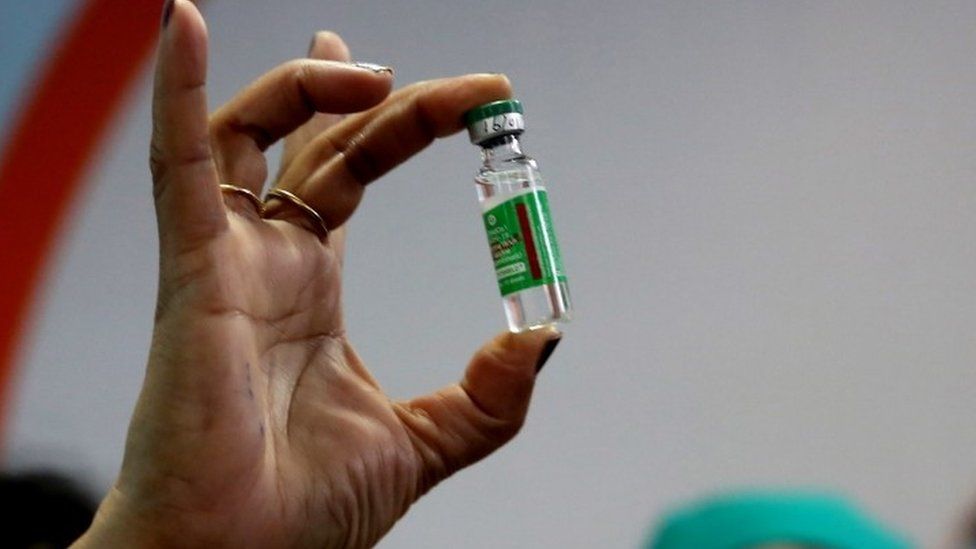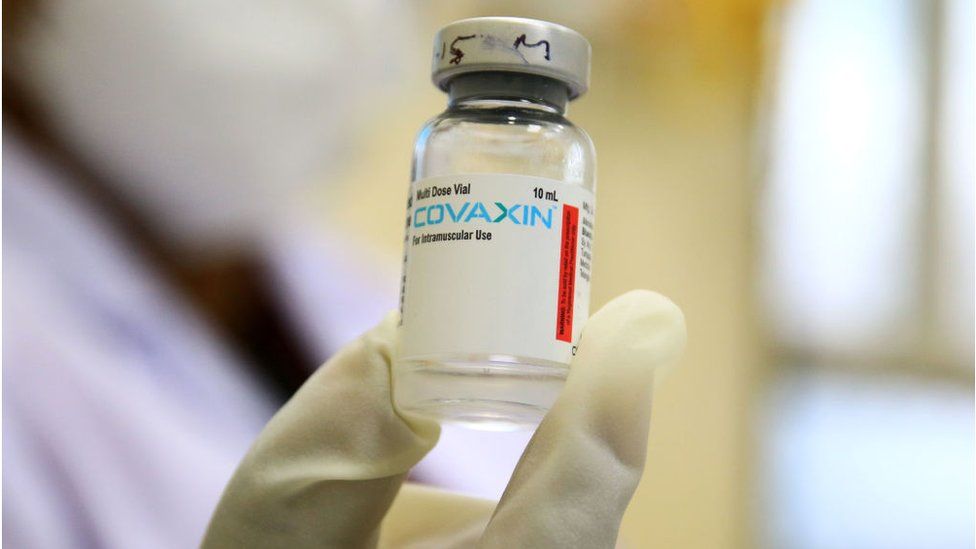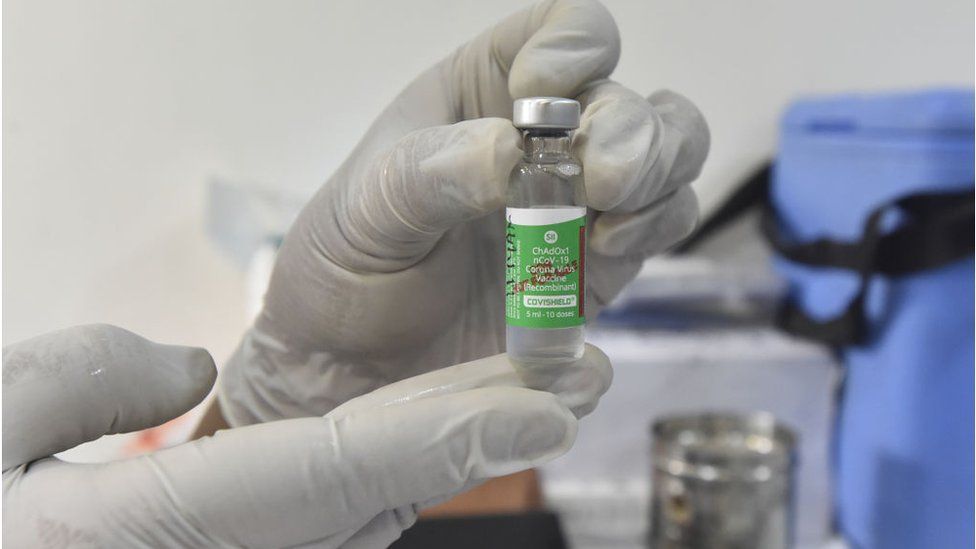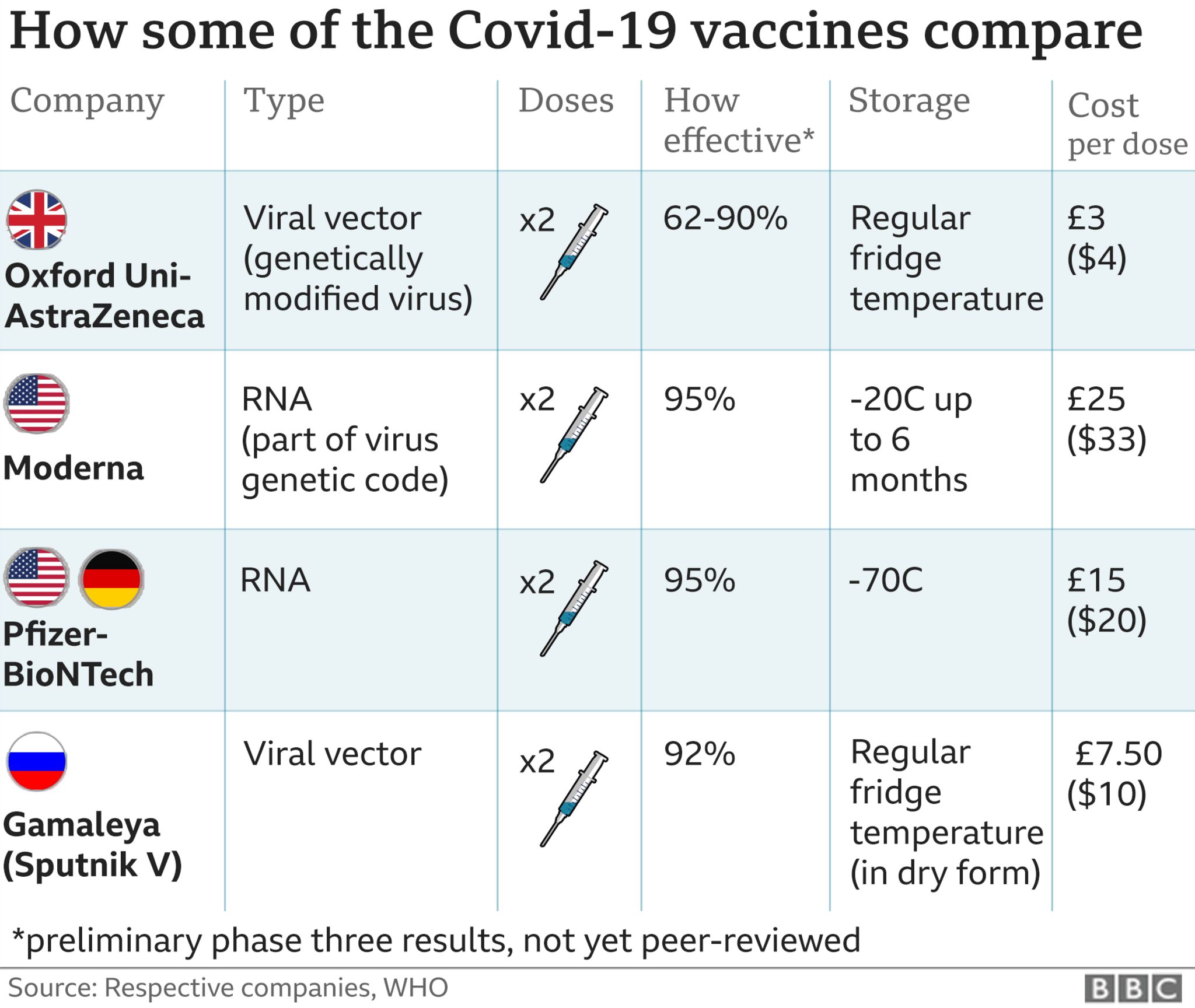5 Things to Do to Secure Your Facebook Account From Hackers


 IMAGE COPYRIGHTEPA
IMAGE COPYRIGHTEPALess than a week after launching the world's largest inoculation drive, India has shipped tens of thousands of free doses of Covid-19 vaccines to neighbouring countries in what is being widely described as "vaccine diplomacy".
India's drug regulator has given the green light to Covishield (the local name for the Oxford-AstraZeneca vaccine developed in the UK) and Covaxin, locally-made by pharma company Bharat Biotech.
India is a vaccine powerhouse: it makes 60% of the world's vaccines and is home to half a dozen major manufacturers.
So what do we know about India's vaccines?
The homegrown government-backed vaccine has been developed by Bharat Biotech, a 24-year-old vaccine maker, which has a portfolio of 16 vaccines and exports to 123 countries.
It is an inactivated vaccine which means that it is made up of killed coronaviruses, making it safe to be injected into the body. Bharat Biotech used a sample of the coronavirus, isolated by India's National Institute of Virology.
When administered, immune cells can still recognise the dead virus, prompting the immune system to make antibodies against the pandemic virus.
 IMAGE COPYRIGHTGETTY IMAGES
IMAGE COPYRIGHTGETTY IMAGESThe two doses are given four weeks apart. The vaccine can be stored at 2C to 8C.
Bharat Biotech says it has a stockpile of 20 million doses of Covaxin, and is aiming to make 700 million doses out of its four facilities in two cities by the end of the year.
It all began when the regulator said the vaccine had been approved for "restricted use in emergency situations in public interest as an abundant precaution, in clinical trial mode, especially in the context of infection by mutant strains".
Experts wondered how a vaccine was cleared for emergency use by millions of vulnerable people when its trials were still underway.
Both the manufacturer and drug regulator say Covaxin is "safe and provides a robust immune response".
But the All India Drug Action Network said it was "baffled to understand the scientific logic" to approve "an incompletely studied vaccine". It said that there were "intense concerns arising from the absence of the efficacy data".
Bharat Biotech has defended the approval, saying Indian clinical trial laws allowed "accelerated" authorisation for use of drugs after the second phase of trials for "unmet medical needs of serious and life-threatening diseases in the country". It has promised to provide efficacy data for the vaccine by February.
The Oxford-AstraZeneca vaccine is being manufactured locally by the Serum Institute of India, the world's largest vaccine manufacturer. It says it is producing more than 50 million doses a month.
The vaccine, which is known as Covishield, is made from a weakened version of a common cold virus (known as an adenovirus) from chimpanzees. It has been modified to look more like coronavirus - although it can't cause illness.
 IMAGE COPYRIGHTGETTY IMAGES
IMAGE COPYRIGHTGETTY IMAGESWhen the vaccine is injected into a patient, it prompts the immune system to start making antibodies and primes it to attack any coronavirus infection.
The jab is administered in two doses given between four and 12 weeks apart. It can be safely stored at temperatures of 2C to 8C, about the same as a domestic refrigerator, and can be delivered in existing health care settings such as doctors' surgeries.
This makes it easier to distribute than some of the other vaccines.
The jab developed by Pfizer-BioNTech, which is currently being administered in several countries, must be stored at -70C and can only be moved a limited number of times - a particular challenge in India, where summer temperatures can reach 50C.
International clinical trials of the Oxford-AstraZeneca vaccine showed that when people were given a half dose and then a full dose, effectiveness hit 90%.
But there was not enough clear data to approve the half-dose, full-dose idea.
However, unpublished data suggests that leaving a longer gap between the first and second doses increases the overall effectiveness of the jab - in a sub-group given the vaccine this way it was found to be 70% effective after the first dose.

Serum Institute (SII), the Indian makers of the vaccine, say Covishield is "highly effective" and backed by phase III trial data from Brazil and United Kingdom. Clinical trials are a three-phased process to determine whether the vaccine induces good immune responses and whether it causes any unacceptable side-effects.
But patients' rights group, All India Drug Action Network, says its approval has been rushed because the manufacturer has not completed a "bridging study" of the vaccine on Indians.
The company has said it will try to conduct the bridging trial of the vaccine in India in February. Some experts say there is no reason to suspect that it won't work as well, given that the clinical trials already completed did include a range of ages and ethnicities.
The other candidates which are in different stages of trials in India to test safety and efficacy include:
Some of the first doses have been already shipped to Bhutan, Maldives, Bangladesh, Nepal, Myanmar and Seychelles.
Only Covishield has been exported so far - some in the form of "gifts" and the rest in line with commercial agreements signed between Serum and these nations.
In June last year, AstraZeneca had reached a licensing agreement with Serum to supply one billion doses for low-and-middle-income countries, with a commitment to provide 400 million before the end of 2020.
India is also planning to send doses to Sri Lanka, Afghanistan and Mauritius after regulatory clearances from these countries. It has also cleared commercial exports of the Covishield vaccine to Brazil.
The foreign ministry says India will continue to supply vaccines all over the world after taking into account domestic requirements and international demands and obligations.
Comments